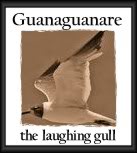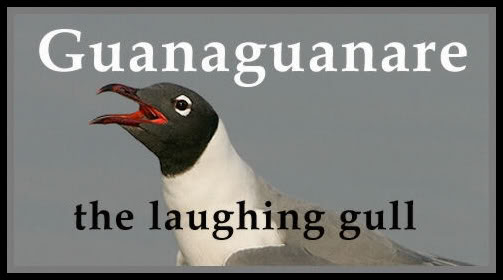 Predictably ignoring the opportunities for introspection and soul-searching that the WikiLeaks' revelations have provided, it has been business as usual for Americay. In the Americas, Venezuela has provided them with their most recent opportunity to do some sabre-rattling and to appear to be promising to drop some retaliatory slaps on that country when the moment is right.
Predictably ignoring the opportunities for introspection and soul-searching that the WikiLeaks' revelations have provided, it has been business as usual for Americay. In the Americas, Venezuela has provided them with their most recent opportunity to do some sabre-rattling and to appear to be promising to drop some retaliatory slaps on that country when the moment is right.The story is that back in July of this year, following Ambassador-Designate Larry Palmer's confirmation hearing to be U.S. Ambassador to Venezuela, Mr. Palmer was asked twelve questions about Venezuela by Senator Dick Lugar, the Ranking Member of the U.S. Senate Foreign Relations Committee. In his questions, Senator Lugar covered:
"human rights and intimidation of citizens in Venezuela based on their political beliefs,
current and future governability after the elections,
a recent Government Accountability Office report stating that the National Guard is deeply involved in the narcotics business,
President Chávez breaking off ties with Colombia,
Venezuelan-Cuban military-to-military interaction,
President Chávez's meddling in the affairs of Colombia,
President Chávez's threat to cut oil supplies to the United States in case of a military attack from Colombia,
Venezuela’s economy and its Central Bank, and
whether the U.S. representation should be downgraded to a level commensurate with the attention and respect granted." SOURCE
You will have to read Larry Palmer's answers to understand why President Hugo Chavez decided at that point that this man was not going to be allowed to function as USA Ambassador to Venezuela. Would the USA accept Hugo Chavez, if he were a diplomat, in their country as Venezuelan Ambassador to the USA? The article below, preceded by the relevant quotes extracted, explains the reasons for President Chavez's antipathy that led to the actions which he took when his concerns were ignored by the sending country, the USA:
SELECTED QUOTES: "President Hugo Chavez's government formally rejected Washington's nominee for ambassador Monday, and the U.S. State Department said the decision will have consequences on relations with Venezuela."
"State Department spokesman P.J. Crowley said Venezuela's government presented an American diplomat in Caracas with a note withdrawing its consent for Larry Palmer to be appointed ambassador. Crowley reiterated that the U.S. stands behind its nomination of Palmer, who is awaiting Senate confirmation."
"Tensions flared over the issue as Chavez warned on Saturday that if Palmer arrives in Venezuela he would be detained and put on the next flight home. Palmer angered Chavez by suggesting during the Senate confirmation process that morale is low in Venezuela's military and that he is concerned Colombian rebels are finding refuge in Venezuela...."
"Chavez, for his part, has publicly been saying for months that Palmer would not be welcome under any circumstances."
US: Chavez's rejection of diplomat to have impact.
By Ian James
The Associated Press
The Washington Post | Monday, December 20, 2010; 4:57 PM"CARACAS, Venezuela -- President Hugo Chavez's government formally rejected Washington's nominee for ambassador Monday, and the U.S. State Department said the decision will have consequences on relations with Venezuela.
State Department spokesman P.J. Crowley said Venezuela's government presented an American diplomat in Caracas with a note withdrawing its consent for Larry Palmer to be appointed ambassador. Crowley reiterated that the U.S. stands behind its nomination of Palmer, who is awaiting Senate confirmation.
Tensions flared over the issue as Chavez warned on Saturday that if Palmer arrives in Venezuela he would be detained and put on the next flight home. Palmer angered Chavez by suggesting during the Senate confirmation process that morale is low in
Venezuela's military and that he is concerned Colombian rebels are finding refuge in Venezuela.
Crowley said Venezuela's rejection of Palmer "has consequences in terms of our relationship with Venezuela."
He said U.S. officials have been discussing the issue with the Venezuelans for months and have warned that if Chavez's government withdraws approval for Palmer's appointment "it would have an impact on our ongoing relations."
Chavez, for his part, has publicly been saying for months that Palmer would not be welcome under any circumstances.
"They've made this decision, and obviously we will evaluate what to do," Crowley told reporters. "We will evaluate the consequences to our relationship."
He would not comment on possible U.S. responses.
A Venezuelan foreign ministry official, Temir Porras, presented a formal diplomatic protest on the matter to the U.S. Embassy's charge d'affaires, Darnall Steuart, during a meeting Monday in Caracas. Steuart said the U.S. regrets Venezuela's stance, and it "will bear the responsibility for that action."
Chavez, whose economy relies heavily on U.S. oil sales, initially expressed optimism that under President Barack Obama, years of hostility between Venezuela and the U.S. could ease. But tensions have persisted, with Chavez accusing Washington of trying to undermine him, and U.S. officials increasingly voicing concerns about threats to democracy in Venezuela." SOURCE
So now we have the USA making threats like:
US State Department spokesman Philip Crowley: "We regret this action taken by the Venezuelan government and it will bear responsibility for that action," he added. SOURCE
"He said the Obama administration will now "evaluate" what action to take.
"We're not arguing that it is within Venezuela's rights to take this action. What we're saying, having taken this action, there will be a consequence in terms of US-Venezuelan relations," Crowley said." SOURCE
So while the USA acknowledged that it is "within Venezuela's rights to take this action" the unspoken message is that rights become wrongs when they do not serve the USA's interests or when they provide a safe haven for those who do not agree with its worldview.
For those of you who are wondering, Venezuela is perfectly within its rights as the receiving state to refuse an ambassador selected by a sending state. The Vienna Convention on Diplomatic Relations [1961] covers this aspect of relations between states. Articles 2 and 9 are relevant to this particular event:
Article 2
The establishment of diplomatic relations between States, and of permanent diplomatic missions, takes place by mutual consent.
Article 9
1.The receiving State may at any time and without having to explain its decision, notify the sending State that the head of the mission or any member of the diplomatic staff of the mission is persona non grata or that any other member of the staff of the mission is not acceptable. In any such case, the sending State shall, as appropriate, either recall the person concerned or terminate his functions with the mission. A person may be declared non grata or not acceptable before arriving in the territory of the receiving State.
2. If the sending State refuses or fails within a reasonable period to carry out its obligations under paragraph 1 of this article, the receiving State may refuse to recognize the person concerned as a member of the mission.
Understand that no legal liability will be incurred by any State for refusing to send or receive diplomatic representatives and that every sovereign state has the right to make these decisions. President Hugo Chavez is of the opinion that "he [Larry Palmer] has disqualified himself by breaking all the rules of diplomacy, by prejudging all of us, even our armed forces." SOURCE
I consider this a plausible reason for refusing Larry Palmer.
Refusals based on plausible reasons should not be considered a cause of rupture but the problem in this case is that, for obvious reasons, the USA will NOT agree that President Hugo Chavez has based his refusal on plausible reasons.
"The Cyclopædia of Political Science, Political Economy, and the Political History of the United States" explains right of legation or diplomatic intercourse at paragraph I.23.7
"The Cyclopædia of Political Science, Political Economy, and the Political History of the United States" explains right of legation or diplomatic intercourse at paragraph I.23.7
"—II. RIGHT OF LEGATION. The right of legation is active and passive, that is, the state which has the right to receive diplomatic envoys has also the right to send them to other states. The right of legation is a consequence of sovereignty. Its exercise belongs to the representative of the state. It is optional and not obligatory. Nevertheless the refusal to receive the minister of a foreign power in time of peace may be considered as a cause of rupture, if the refusal be not founded on plausible reasons. Among these the most important may be the person of the minister himself, who may be objectionable to the government to which he is accredited. When one state denies to another the right to accredit ministers to it, it refrains from exercising the like right itself."
Keep in mind that last year the Vatican refused the last of three Ambassadors selected to represent the US at the Holy See. Caroline Kennedy was refused in April 2009 because she is not pro-life. According to the Vatican, their refusals were based on the "plausible reason" that these ambassadors support for abortion disqualified them from representing the USA to the Holy See.
What was the USA's response to that? Did they tell the Vatican that there would be "CONSEQUENCES"? Did they tell the Pope that they regretted his actions and that the Vatican would "BEAR RESPONSIBILITY FOR THOSE ACTIONS."? Not at all! Because monkey know which tree to climb, "The White House declined to comment on the matter."
Although I continue to refuse to put my head on a block for any human being [including myself], I cannot disagree with President Hugo Chávez Frías in this matter.
What was the USA's response to that? Did they tell the Vatican that there would be "CONSEQUENCES"? Did they tell the Pope that they regretted his actions and that the Vatican would "BEAR RESPONSIBILITY FOR THOSE ACTIONS."? Not at all! Because monkey know which tree to climb, "The White House declined to comment on the matter."
Although I continue to refuse to put my head on a block for any human being [including myself], I cannot disagree with President Hugo Chávez Frías in this matter.
Update: Jan 7th 2011 - Chavez-Clinton surprise meeting reduces tension.

..............................................................................................................................
"Patria est communis omnium parens" - Our native land is the common parent of us all. Keep it beautiful, make it even more so.
Blessed is all of creation
Blessed be my beautiful people
Blessed be the day of our awakening
Blessed is my country
Blessed are her patient hills.
Mweh ka allay!
Guanaguanare













0 comments:
Post a Comment